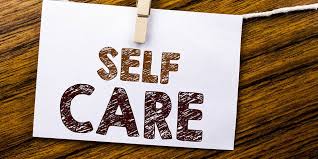In the hustle and bustle of life, we often hear the phrase “self-care,” but what does it really mean? Is it just about bubble baths and treating yourself to a special meal, or is it something deeper, something more vital to your well-being? Self-care is not doing things you think you are “should do” or what society says to do. If going to the spa feels uncomfortable for you, then going to the spa is not self-care. Caring for yourself is an essential practice that goes far beyond surface-level comforts. It’s about reconnecting with your needs, nurturing your mind, body, and spirit, and treating yourself with the kindness you truly deserve.
If you’re feeling overwhelmed, drained, or disconnected, maybe it’s time to go back to the basics of self-care. Let’s explore how you can make small, yet powerful changes that will support your emotional and mental health in profound ways.
1. Listen to Your Body
Your body is always talking to you. Whether it’s through physical tension, fatigue, or a sense of restlessness, your body gives you signals when it needs attention. But how often do you stop and listen? One of the most basic forms of self-care is simply paying attention to what your body is telling you.
Take moments during the day to pause, breathe deeply, and ask yourself, “What does my body need right now?” Maybe it’s rest, maybe it’s movement, maybe it’s hydration or a nourishing meal. By tuning in, you’re not only caring for your physical self but also sending a powerful message to yourself: I matter, and my needs are important.
2. Nurture Your Mind
In today’s fast-paced world, we often neglect the health of our minds. We get stuck in patterns of overthinking, self-criticism, or endless worry. Self-care for your mind means creating space to slow down and be present with yourself. It could be as simple as setting aside five minutes a day to practice mindfulness, meditate, or journal your thoughts.
Journaling is especially powerful because it allows you to release what’s swirling in your head, and reflect on your experiences without judgment. It’s a form of emotional release that nurtures your mental clarity and helps you understand yourself better. Even brief periods of mindfulness can make a significant difference in how you feel throughout your day.
3. Set Healthy Boundaries
This is a big one. How often do you find yourself saying “yes” when you really mean “no”? Whether it’s in your relationships, at work, or even with yourself, setting healthy boundaries is one of the most empowering acts of self-care. Boundaries are not about shutting others out, but about protecting your energy and well-being. Setting boundaries for yourself can inspire and empower others to set healthy boundaries for themselves as well.
You deserve to have space in your life where you can rest and recharge without guilt. It’s okay to say no to things that overwhelm or drain you. Start with small steps—identify one area where you can set a boundary today and see how it helps you regain a sense of control and peace.
4. Practice Self-Compassion
This is perhaps the most loving form of self-care—learning to speak kindly to yourself. We are often our own worst critics, holding ourselves to impossibly high standards. But self-care means treating yourself with the same kindness and understanding that you would offer a dear friend.
When you make a mistake, or when things don’t go as planned, take a moment to remind yourself that you are human, and that it’s okay to not have everything figured out. Self-compassion is not about letting yourself off the hook, but about recognizing that you are worthy of love and forgiveness, even when things are tough. Replace negative self-talk with truthful and positive messaging.
5. Reconnect with Joy
Sometimes we get so caught up in responsibilities that we forget to ask ourselves, What brings me joy? It’s easy to think that self-care is just about what you need to survive, but it’s also about thriving. Take time to engage in activities that light you up, that bring you peace, or that simply make you smile.
Whether it’s a creative hobby, spending time in nature, playing with a pet, or calling a friend who makes you laugh, these moments of joy are essential. They remind you that life isn’t just about getting through the day—it’s about savoring it. If you’re not sure what naturally brings you joy, think about what activities or hobbies you enjoyed authentically when you were a kid that you may have stopped as an adult. Reading? Going to the pool? Walking in the woods?
A Loving Reminder
Self-care is not selfish. It is an act of love—for yourself and for those around you. When you take care of yourself, you are better able to show up fully in your relationships, in your work, and in your life. Going back to the basics doesn’t mean you’re starting over—it means you’re honoring the foundation of your well-being.
If you’ve been struggling to prioritize your needs, remember that it’s never too late to start. Self-care is a lifelong practice, and every small step you take brings you closer to feeling more balanced, more present, and more at peace.


